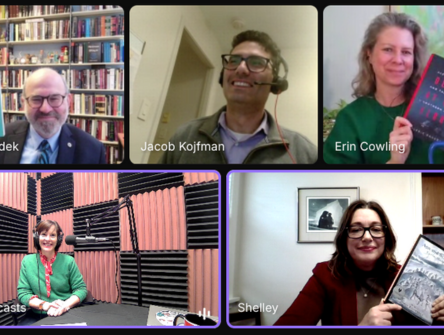Battle to rule the splinternet
Whose laws hold sway in the internet’s global marketplace?

Ever since the world went online, free-speech enthusiasts have worried about national governments legislating the internet, and domestic courts enforcing those laws beyond their territory.
The first signs of this appeared with libel cases. Media companies were especially spooked in 2002 after an Australian court allowed a Melbourne businessman to sue New York publishing company Dow Jones & Co for online defamation. Critics of the ruling at the time declared it a tragedy for free speech, and warned of the demise of the internet and its fragmentation. Before long, media companies adjusted themselves and the internet continued on its path to become the global mass medium of choice.
Still, anxiety over the legal fragmentation of the internet keeps returning to the fore, with national courts now targeting the likes of Google and Facebook.
In 2014 the Court of Justice of the European Union caused a stir when it forced Google to comply with EU data privacy laws and to remove a Spanish national’s personal information from its search results. In doing so the CJEU recognized a “right to be forgotten” with extra-territorial reach – heresy for free-for-all internet believers. As of this writing, France’s data protection watchdog was still awaiting word from the country’s top administrative court on whether it can order Google to delist on all of its search domains, not just those in the EU. And in May 2017, the EU’s General Data Protection Regulation will take effect, setting a new global standard for global trading in privacy rights.
Closer to home, the Supreme Court of Canada is scheduled to hear this month an appeal on yet another injunction against Google. The internet giant became involved as a third party when a B.C. manufacturer, Equustek Solutions, took legal action against a former distributor who was using trade secrets to produce and market Equustek’s products as its own. Google, with no place of business in the province, was ordered to delist search results pointing to the offending company’s websites. The B.C. Court of Appeal upheld decision.
The Supreme Court is also hearing another B.C. appeal, Douez v. Facebook, which arrived at a seemingly different conclusion – that the networking site’s terms and conditions override the province’s privacy law.
For freedom of speech advocates, the orders against Google set a terrible precedent for commercial enterprises that, without good reason, would erase negative consumer reviews, and for authoritarian governments that would muzzle political dissent.
They further point to evidence that Facebook – now the main source of news in North America – is already going too far in policing what passes as acceptable online behaviour. In the last year it has been accused of suppressing conservative views, and ridiculed for censoring, thanks to its algorithm, the iconic image of a naked, nine-year old girl fleeing a napalm attack during the Vietnam War because it violated standards for nudity. Its controversial Free Basics program, which gives users access to a pared-down version of the internet in markets with poor access – notably in Africa – relies heavily on partnerships with mobile providers that are state-owned. With Free Basics, critics say, Facebook is opening the door for despots to exercise more censorship online, not less.
All of these concerns are valid, but they miss a larger point, which is that differences in views about free speech and privacy are rooted in real cultural differences. These can be stark even among close allies. Freedom of expression in Canada is nowhere near as absolute as free speech is in the U.S, or in Britain for that matter.
Cases like Equustek and Douez are fundamentally about how to regulate illegality on the internet in a global marketplace with conflicting domestic laws. Finding ways to make them compatible is always going to be messy, just as it has been when we have negotiated extradition or human rights treaties. But it is a strangely circular argument to say that allowing domestic courts to enforce laws extraterritorially – thereby giving them meaningful effect – undermines the rule of law by showing autocrats how to game evolving norms of internet governance in their favour.
The Global Commission on Internet Governance has been calling for “a new global social compact to promote a single, open and secure Internet for all.” Among other recommendations, it wants governments to negotiate data-sharing agreements that would stop them from skirting their partners’ national laws. Perhaps over time, with much cajoling, pressuring and trading, international rules will converge gradually into a more uniform code of internet conduct.
In the meantime it is important to recognize the world is still divided into tribes, each one governed by its own set of rules. With 196 national governments representing some 7.4 billion citizens, we are more likely to see regulation evolve from competing solutions – some imposed by lawmakers, others by our national courts – vying for influence over how we use a global internet.


